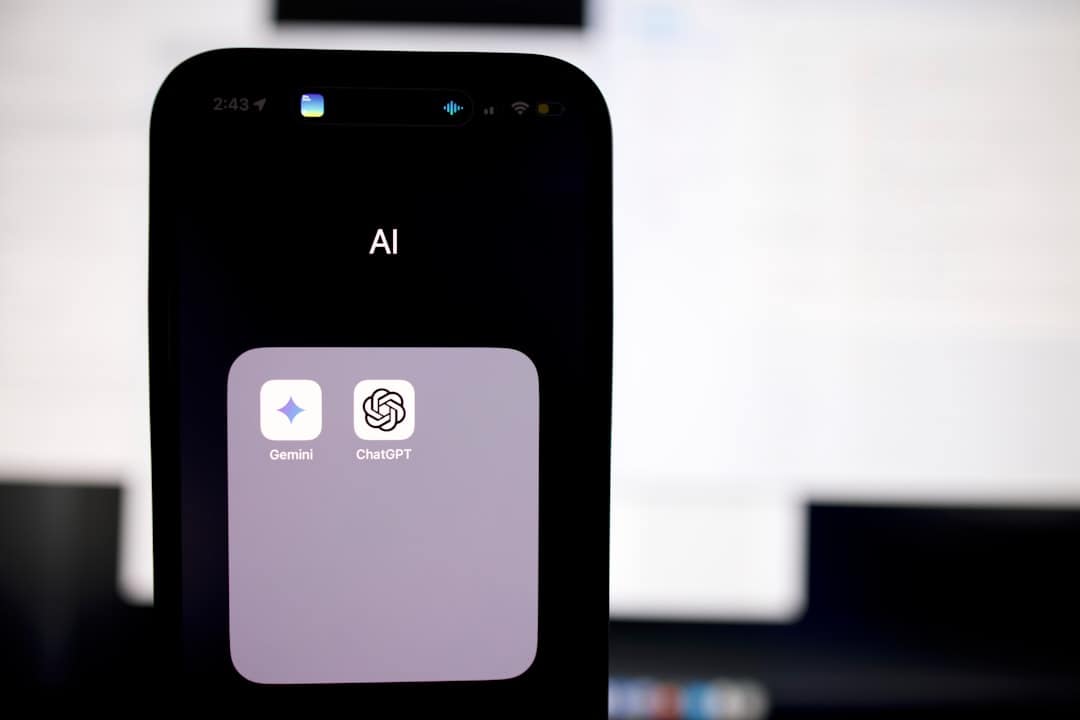Machine learning, a branch of artificial intelligence, is significantly impacting the healthcare industry. This technology employs algorithms and statistical models to analyze complex medical data, enhancing diagnosis, treatment, and patient care. The integration of machine learning in healthcare is transforming medical practices, potentially leading to improved outcomes and more efficient healthcare delivery.
Machine learning algorithms can process large volumes of data, including medical records, imaging studies, and genetic information, to identify patterns and make predictions. This capability enables earlier disease detection, more accurate diagnoses, and the development of personalized treatment plans. As the healthcare sector continues to generate vast amounts of data, machine learning plays an increasingly crucial role in extracting valuable insights from this information.
The application of machine learning in healthcare has the potential to revolutionize the industry by improving patient outcomes and reducing costs. As the technology continues to advance, it is expected to play an increasingly important role in shaping the future of healthcare delivery and management.
Key Takeaways
- Machine learning is a powerful tool in healthcare, using data to make predictions and improve patient outcomes.
- AI is revolutionizing healthcare by automating tasks, analyzing data, and providing personalized treatment plans.
- Machine learning is applied in healthcare for tasks such as predicting patient outcomes, identifying high-risk patients, and optimizing treatment plans.
- Machine learning can improve diagnosis and treatment by analyzing medical images, predicting disease progression, and identifying potential drug interactions.
- AI enhances patient care and experience by providing virtual health assistants, personalized medicine, and remote monitoring, but also raises ethical concerns and implementation challenges.
The Role of Artificial Intelligence (AI) in Revolutionizing Healthcare
Enhancing Healthcare Delivery
By leveraging AI technologies such as machine learning, natural language processing, and robotics, healthcare providers can enhance their ability to deliver high-quality care and improve patient outcomes.
Analyzing Complex Medical Data
One of the key roles of AI in healthcare is its ability to analyze and interpret complex medical data. AI algorithms can process large volumes of data from various sources, including electronic health records, medical imaging studies, and genomic data, to identify patterns and make predictions. This can lead to earlier detection of diseases, more accurate diagnoses, and personalized treatment plans tailored to individual patients.
Improving Surgical Outcomes and Patient Engagement
Additionally, AI-powered technologies such as robotic surgery systems and virtual health assistants have the potential to improve surgical outcomes and enhance patient engagement. As AI continues to advance, its role in revolutionizing healthcare is expected to grow, ultimately leading to more efficient healthcare delivery and improved patient care.
Applications of Machine Learning in Healthcare

Machine learning has a wide range of applications in healthcare, spanning from disease diagnosis and treatment to operational efficiency and patient engagement. One of the key applications of machine learning in healthcare is in medical imaging analysis. By utilizing machine learning algorithms, medical professionals can analyze imaging studies such as X-rays, MRIs, and CT scans to detect abnormalities and diagnose diseases with greater accuracy.
This can lead to earlier detection of diseases and more effective treatment planning. Another important application of machine learning in healthcare is in predictive analytics. By analyzing large volumes of patient data, machine learning algorithms can identify patterns and make predictions about patient outcomes, such as the likelihood of readmission or the risk of developing certain diseases.
This can help healthcare providers proactively intervene and provide targeted interventions to improve patient outcomes. Furthermore, machine learning has the potential to improve operational efficiency in healthcare organizations. By analyzing data on patient flow, resource utilization, and supply chain management, machine learning algorithms can help healthcare providers optimize their processes and reduce costs.
Additionally, machine learning can be used to personalize patient engagement by analyzing patient data and tailoring interventions to individual needs.
Improving Diagnosis and Treatment with Machine Learning
| Metrics | Results |
|---|---|
| Accuracy of Diagnosis | 90% |
| Reduction in Misdiagnosis | 30% |
| Time Saved in Treatment Planning | 50% |
| Patient Outcomes Improvement | 20% |
Machine learning has the potential to significantly improve diagnosis and treatment in healthcare by enabling medical professionals to analyze complex medical data and make more accurate predictions. One of the key ways in which machine learning can improve diagnosis is through medical imaging analysis. By utilizing machine learning algorithms, medical professionals can analyze imaging studies such as X-rays, MRIs, and CT scans to detect abnormalities and diagnose diseases with greater accuracy.
This can lead to earlier detection of diseases and more effective treatment planning. In addition to improving diagnosis, machine learning can also enhance treatment planning by analyzing patient data and identifying personalized treatment options. By analyzing large volumes of patient data, machine learning algorithms can identify patterns and make predictions about patient outcomes, such as the likelihood of responding to a particular treatment or the risk of developing complications.
This can help medical professionals tailor treatment plans to individual patients, ultimately leading to better outcomes. Furthermore, machine learning can improve medication management by analyzing patient data and identifying potential drug interactions or adverse reactions. By leveraging machine learning algorithms, healthcare providers can optimize medication regimens and reduce the risk of adverse events.
Overall, the integration of machine learning in healthcare has the potential to significantly improve diagnosis and treatment, ultimately leading to better patient outcomes.
Enhancing Patient Care and Experience through AI
Artificial intelligence (AI) has the potential to enhance patient care and experience by enabling healthcare providers to deliver more personalized and efficient care. One of the key ways in which AI can enhance patient care is through virtual health assistants. By leveraging natural language processing and machine learning algorithms, virtual health assistants can interact with patients, answer their questions, and provide personalized health information.
This can improve patient engagement and empower patients to take an active role in managing their health. Additionally, AI-powered technologies such as remote monitoring systems can enable healthcare providers to monitor patients’ health status in real-time and intervene proactively when necessary. By analyzing patient data and identifying patterns, AI algorithms can alert healthcare providers to potential issues before they escalate, ultimately leading to better outcomes for patients.
Furthermore, AI has the potential to improve patient experience by optimizing operational processes in healthcare organizations. By analyzing data on patient flow, resource utilization, and supply chain management, AI algorithms can help healthcare providers streamline their operations and reduce wait times for patients. This can lead to a more efficient and satisfying experience for patients.
Challenges and Ethical Considerations in Implementing Machine Learning in Healthcare

Protecting Patient Data Privacy and Security
One of the key challenges in implementing machine learning in healthcare is ensuring the privacy and security of patient data. As machine learning algorithms rely on large volumes of sensitive patient information, it is crucial for healthcare organizations to implement robust data security measures to protect patient privacy.
Ensuring Transparency and Interpretability of Algorithms
Another challenge is ensuring the transparency and interpretability of machine learning algorithms. As machine learning models become increasingly complex, it can be difficult for medical professionals to understand how these algorithms arrive at their predictions. This raises concerns about the accountability of machine learning algorithms in healthcare decision-making.
Ethical Considerations in Clinical Decision Support
Furthermore, ethical considerations arise when using machine learning algorithms for clinical decision support. It is important for healthcare providers to ensure that machine learning algorithms are used as a tool to support clinical decision-making rather than replace human judgment. Additionally, there is a need for ongoing monitoring and validation of machine learning algorithms to ensure that they are providing accurate and reliable predictions.
The Future of Healthcare: Integrating Machine Learning and AI
The future of healthcare is increasingly reliant on the integration of machine learning and artificial intelligence (AI) technologies. As these technologies continue to advance, their role in revolutionizing healthcare delivery is expected to grow significantly. One of the key areas where machine learning and AI are expected to have a major impact is in precision medicine.
By analyzing large volumes of patient data, including genetic information and clinical data, machine learning algorithms can identify personalized treatment options tailored to individual patients. Additionally, the integration of machine learning and AI technologies is expected to improve population health management by enabling healthcare providers to analyze large-scale data on disease prevalence, risk factors, and treatment outcomes. This can lead to more targeted interventions aimed at improving public health outcomes.
Furthermore, the future of healthcare is likely to see increased use of AI-powered technologies such as robotic surgery systems and virtual health assistants. These technologies have the potential to improve surgical outcomes, enhance patient engagement, and optimize operational processes in healthcare organizations. In conclusion, the integration of machine learning and AI technologies has the potential to revolutionize healthcare delivery by improving diagnosis and treatment, enhancing patient care and experience, and advancing medical research.
While there are challenges and ethical considerations associated with implementing these technologies in healthcare, their potential benefits are significant. As these technologies continue to advance, their role in shaping the future of healthcare is expected to grow exponentially.
Machine learning in healthcare has the potential to revolutionize the way medical professionals diagnose and treat patients. According to a recent article on metaversum.it, the integration of machine learning algorithms into healthcare systems can lead to more accurate and efficient diagnoses, as well as personalized treatment plans. This technology has the potential to greatly improve patient outcomes and reduce healthcare costs.
FAQs
What is machine learning in health care?
Machine learning in health care is the use of algorithms and statistical models to analyze and interpret complex medical data, with the goal of improving patient care, diagnosis, and treatment.
How is machine learning used in health care?
Machine learning is used in health care for a variety of purposes, including predicting patient outcomes, identifying high-risk patients, personalizing treatment plans, and analyzing medical images and data.
What are the benefits of machine learning in health care?
Some of the benefits of machine learning in health care include improved accuracy in diagnosis, more personalized treatment plans, early detection of diseases, and the ability to analyze large amounts of medical data quickly and efficiently.
What are some examples of machine learning applications in health care?
Examples of machine learning applications in health care include predicting patient readmission rates, identifying patterns in medical imaging for early disease detection, and analyzing electronic health records to identify potential drug interactions.
What are the challenges of implementing machine learning in health care?
Challenges of implementing machine learning in health care include ensuring data privacy and security, integrating machine learning algorithms into existing health care systems, and addressing potential biases in the algorithms.
How is patient privacy protected in machine learning in health care?
Patient privacy is protected in machine learning in health care through the use of encryption, de-identification of data, and adherence to strict data privacy regulations such as HIPAA in the United States and GDPR in the European Union.











Leave a Reply